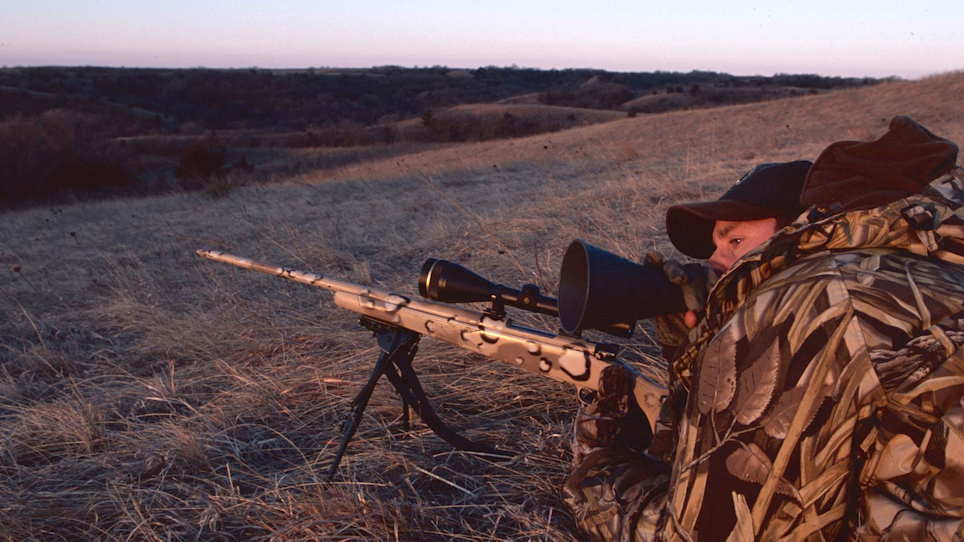
North Dakota's "Coyote Catalog" helps predator hunters find landowners who are willing to let them hunt for songdogs. (Photo: Mark Kayser)
Locating land to hunt is becoming increasingly complicated in a world of absentee landowners, investment properties, anti-hunting deed holders and those managing for their own hunting pursuits. Unless you live in the far West where 50 percent or more of the land is managed by the federal government, you may be challenged to find an open gate.
Overall, approximately 60 percent of America is privately owned and according to hunter surveys, most of you use those private lands for hunting pursuits. A HunterSurvey.com poll from 2015 revealed that 38 percent of respondents hunted on family land or the land of friends. Those that hunted primarily on public lands accounted for 28 percent of those responding.
Wouldn’t it be a blessing if there was help out there where hunters and landowners could connect? What if landowners, who had coyote or predator problems, actually were listed on a system where hunters could link up? The resourceful folks in North Dakota, who to this day are still trying to shake the silly nature associated with them in the movie “Fargo,” have made this portal a reality.
Titled the Coyote Catalog, this unique program was the brainchild of both the North Dakota Department of Agriculture and the North Dakota Game and Fish Department. It’s designed to team landowners who are experiencing coyote problems with hunters and trappers looking for access. Simply log on to the site, fill out the paperwork and it puts the wheels in motion for you to find a landowner willing to give you access to help with a coyote problem.
Like most wildlife species, predator populations trend up and down. When livestock producers see spikes in the coyote population they oftentimes make their complaint known to state officials. Some of the demanding and urgent coyote issues are addressed by the U.S. Department of Agriculture Animal and Plant Health Inspection Service Wildlife Services division. That’s a mouthful, but they take on cases where there’s an immediate threat to livestock and it’s a free service from the federal government.
In most other cases the Coyote Catalog stands ready for livestock producers and the general public to unite for coyote management in North Dakota. In the past coyotes have cost state livestock producers up to $1 million in losses so a helpful approach to management is definitely a win-win.
If a trip to North Dakota is about as likely as your dreams to visit Fiji, don’t return to the La-Z-Boy yet. It pays to be a sleuth. If you have a destination in mind reach out to state game and fish agencies, area chamber of commerce offices, state tourism associations and other organizations that either manage wildlife, or assist in tourism efforts. They may have ideas or even lists of landowners willing to provide access. Some may require a trespass fee while others may be free. In my home state of Wyoming several city chamber offices keep lists of landowners willing to allow big game hunting.
North Dakota may forever suffer from the “Fargo” effect, but at least they got it right with the Coyote Catalog.





